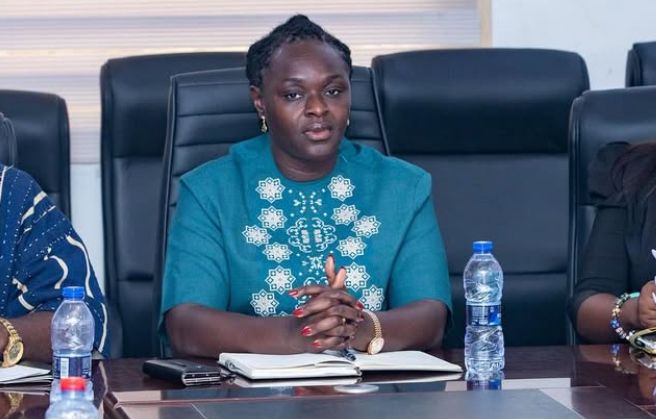Professor Nana Ama Klutse, the Acting Chief Executive Officer of the Environmental Protection Agency (EPA) of Ghana, has asserted that the agency has not received any formal complaints implicating politicians in illegal mining activities, popularly known as “galamsey.” This statement, made during an interview on Accra-based Channel One TV, underscores the EPA’s reliance on formal complaint mechanisms as a trigger for investigations and subsequent actions against individuals engaged in illicit mining practices. While acknowledging the pervasive nature of galamsey and its detrimental impact on Ghana’s environment, Prof. Klutse emphasized the EPA’s commitment to addressing the issue, but stressed the necessity of concrete evidence and official reports to initiate investigations against specific individuals, including politicians. This reliance on reported complaints, while procedurally sound, raises questions about the efficacy of proactive monitoring and investigation, particularly given the well-documented influence of political figures in galamsey operations.
The EPA’s operational framework, as outlined by Prof. Klutse, revolves around a two-pronged approach: proactive monitoring and reactive response to complaints. The agency conducts independent environmental monitoring to identify potential violations and environmental degradation. Concurrently, it investigates complaints lodged by communities or companies affected by illegal mining activities. This dual approach aims to ensure comprehensive coverage, addressing both observed violations and reported incidents. Upon confirming violations, the EPA initiates legal action against offenders, irrespective of their social or political standing. This commitment to applying the law equally to all citizens, including politicians, underscores the agency’s dedication to upholding environmental regulations.
Prof. Klutse’s assertion, however, contrasts with investigative reports and widespread public perception regarding the involvement of politicians in galamsey. The 2024 investigative report by The Fourth Estate, a project of the Media Foundation for West Africa, directly implicated several politically exposed persons from the previous New Patriotic Party (NPP) government in illegal mining activities. This discrepancy between the EPA’s claim of lacking formal complaints and the existence of investigative reports highlighting political involvement raises concerns about potential gaps in the reporting and investigative processes. It also highlights the challenges faced by investigative journalists and civil society organizations in ensuring accountability for environmental crimes, particularly when powerful individuals are involved.
The EPA’s mandate, as reiterated by Prof. Klutse, focuses on safeguarding the environment and coordinating all activities that impact it. This broad mandate necessitates a multi-faceted approach encompassing environmental monitoring, enforcement of regulations, and collaboration with other stakeholders. However, the agency’s efficacy in fulfilling this mandate is contingent upon its ability to effectively address the complex issue of galamsey, which often involves powerful actors and intricate networks. The lack of formal complaints against politicians, despite evidence suggesting their involvement, raises questions about the accessibility and effectiveness of the EPA’s complaint mechanisms, and whether these mechanisms adequately protect whistleblowers and witnesses.
The challenges faced by the EPA in tackling galamsey are multifaceted and deeply intertwined with the political and socio-economic landscape of Ghana. The influence of powerful individuals, the economic incentives driving illegal mining, and the often-limited resources available to regulatory bodies create significant obstacles in enforcing environmental regulations. The EPA’s reliance on formal complaints, while procedurally justifiable, may inadvertently shield influential figures from scrutiny and accountability if those complaints are not forthcoming due to fear of reprisal or lack of trust in the system. This highlights the need for robust whistleblower protection mechanisms and proactive investigative strategies to uncover and address political involvement in galamsey.
Addressing the galamsey menace requires a comprehensive and multi-pronged strategy that goes beyond responding to formal complaints. This includes strengthening the EPA’s proactive monitoring and investigative capacities, fostering collaboration with other law enforcement agencies, and enhancing transparency and accountability within the mining sector. Furthermore, empowering local communities and civil society organizations to report illegal mining activities without fear of retribution is crucial. Ultimately, tackling galamsey effectively requires a concerted effort from all stakeholders, including government agencies, civil society, the media, and the public, to ensure the protection of Ghana’s environment and the sustainable management of its natural resources. The EPA’s role in this collaborative effort is pivotal, and its effectiveness will depend on its ability to address the systemic challenges that hinder its ability to hold all perpetrators of illegal mining accountable, regardless of their political or social standing.














